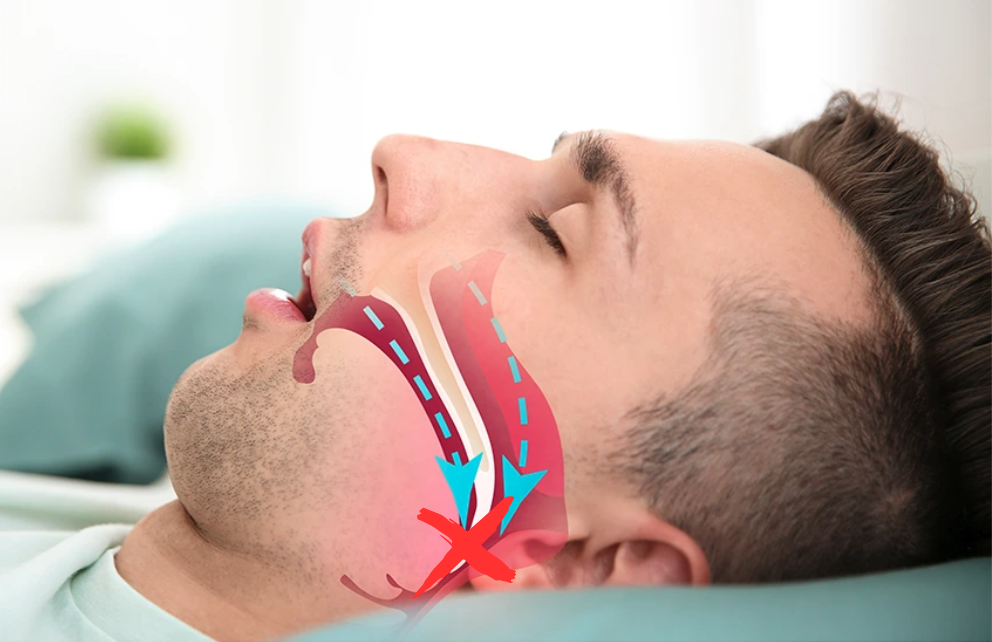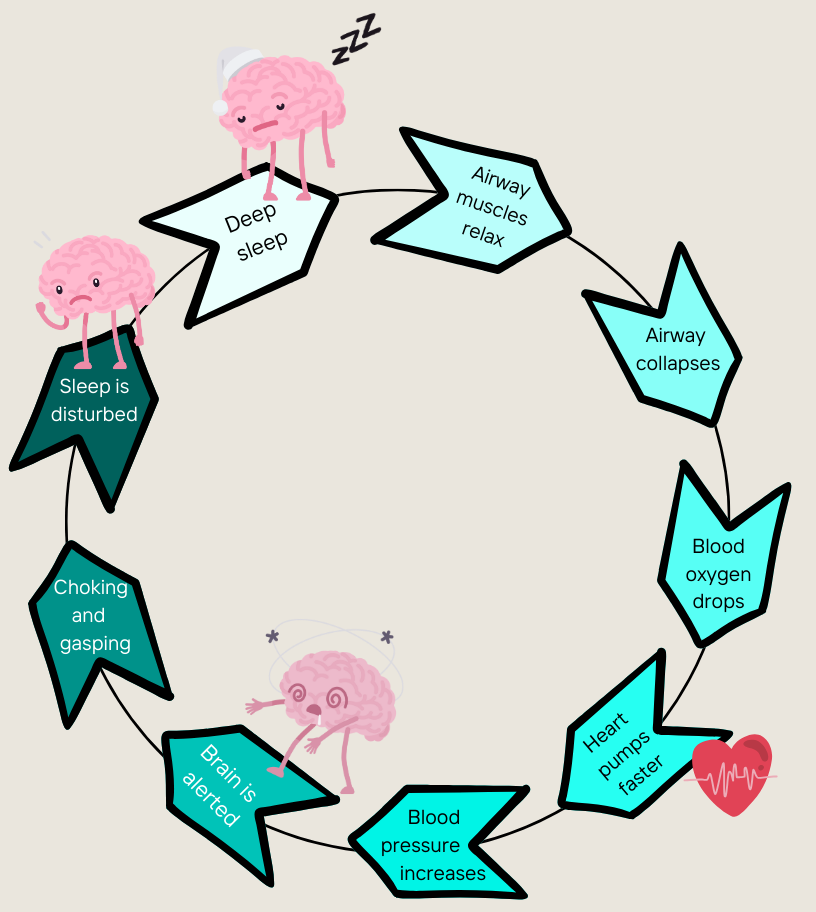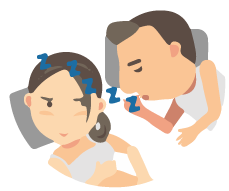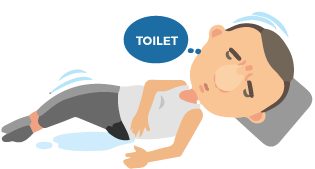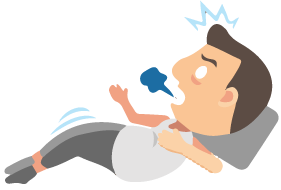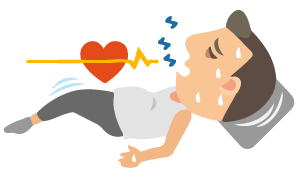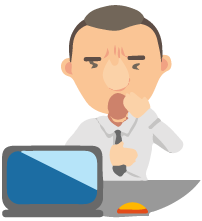
What is sleep apnea, and why should I care?
Normal Airway
Obstructive Sleep Apnea
Muscles relax during sleep, blocking the airway.
A serious medical condition…
Sleep apnea is a serious chronic medical condition. Obstructive sleep apnea (OSA) is the most common form of sleep apnea and that occurs when muscles relax during sleep, allowing soft tissue to partially or completely collapse and block the airway.¹ There are a few reasons why this may occur: 1) Your throat muscles become too relaxed to hold your airway open. 2) Your tongue falls back and blocks your airway. 3) Fatty tissue blocks your airway. 4) You have a narrow airway.²
When the airway collapses either partially or completely, breathing to slow down (hypopnea) or completely stop (apnea) for seconds to minutes at a time, multiple times a night, reducing oxygen supply to your body. Your heart pumps faster and blood pressure increases to compensate, your brain is alerted and your body responds by choking and gasping, and this disturbance results in fragmented, nonrestorative sleep.
Other types of sleep apnea include central sleep apnea (CSA) and mixed sleep apnea, whose causes differs.
In adults, sleep apnea may cause excessive daytime drowsiness, morning headaches, jaw pain, mental illness and an inability to concentrate on everyday tasks. As many documented cases show, obstructive sleep apnea can be life threatening. Sleep related breathing disorders can lead to high blood pressure, heart or circulatory problems, stroke, diabetes, and even accidents from excessive daytime sleepiness.
In children, sleep apnea may manifest differently. Symptoms may include bedwetting, night terrors, sleepwalking, behavioral issues such as difficulty focusing, hyperactivity, irritability, anxiety and even aggression. Like adults, you may also notice snoring (often with pauses, snorts or gasps between breaths), heavy breathing while sleeping or extremely restless sleep, in addition to morning headaches and daytime sleepiness.⁵
Symptoms of Sleep Apnea in Adults
¹⁻⁵
Loud snoring
Frequent visits to the bathroom
Choking, gasping for air, wheezing and/or chest pain
Memory, concentration and/or attention problems
Restless sleep and witnessed pauses in breathing
Waking up with a dry mouth/sore throat
Early morning headache
Jaw pain
Nighttime sweats
Daytime sleepiness
Decreased libido
Other symptoms may include: Bruxism, jaw clicking and locking.
How is sleep apnea diagnosed?
Your medical provider or sleep physician will need to know your symptoms, and whether the symptoms are associated with weight gain. If possible, ask a partner, roommate or relative if they have ever heard you snore loudly or make choking noises in your sleep.¹
They will also try to determine if there is something else that is causing your sleep problems or making the symptoms worse, such as:
Another sleep disorder
A medical condition
Medication use
Substance abuse
A mental health disorder
After this, an objective evaluation of your sleep may be required before a diagnosis can be made. This may involve an overnight sleep lab study (polysomnography) and/or a home sleep study.
I think I might have sleep apnea!
What do I do?
Contact your family doctor or primary care physician, discuss your symptoms with them, and they can refer you to Airway ENT and Oral Surgery. They can access our referral form here.
Don’t want to go through your family doctor or don’t have one?



